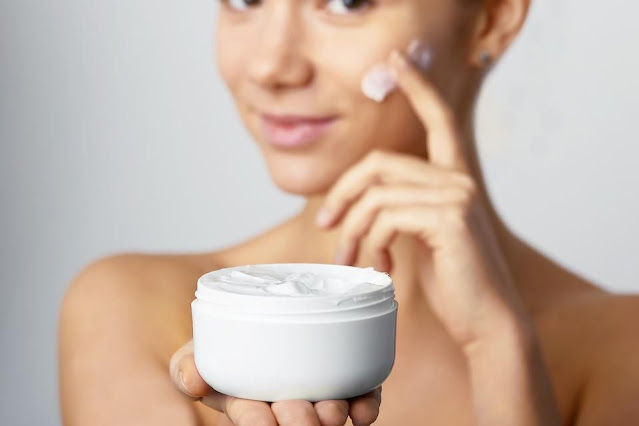Global Anti-Aging Products Market Is Estimated To Witness High Growth Owing To Increasing Demand For Introduction Of Organic Anti-Aging Products And Rising Consumer Preference Towards Natural Products
 |
| Anti-Aging Products Market |
Overview:
Anti-aging creams and lotions are predominantly moisturizer-based
cosmeceutical skincare products marketed with the promise of making the
consumer look younger by reducing, masking or preventing the signs of aging.
These include fine lines and wrinkles, sagging skin, loss of elasticity and
dryness. A number of ingredients can be found in anti-aging products including
retinol, glycerin, hyaluronic acid and vitamin C. These are all known to
increase skin hydration, decrease the appearance of fine lines and wrinkles,
improve skin tone and texture and brighten the complexion. Green Tea Extract is
another great ingredient for anti-aging as it is an antioxidant that fights
free radicals and helps to decrease skin inflammation. It can also help to
reduce the appearance of sun damage and can boost the skin's elasticity.
Market Dynamics:
Growing
collaborations among key players are estimated to augment growth of the global anti-aging products market
during the forecast period. For instance,
a Chinese
cosmetics company Pechoin Group and Merck KGaA entered in a strategic agreement
in August 2020, for developing herbal technology and launching Pechoin Zhenyan
anti-wrinkle repair series. Moreover, easy availability
of less toxic alternatives and increasing adverse
effects of anti-ageing products is
anticipated to restrain growth of the global anti-aging products market
during
the forecast period.
Impact
of COVID-19:
The
outbreak of the pandemic harmed the growth of the anti-ageing
products market. COVID-19 disrupted
the manufacture and distribution of cosmetics globally. As manufacturers had to
halt production activities, owing to strict restrictions implemented by
governments in many countries. As all retail stores were also shut down, along
with many spa, and parlors. This decreased the demand for anti-aging products. Thus, the
growth of the
global anti-aging products market was restrained during the
pandemic. However, during the pandemic the demand for anti-ageing products that could be used at home increased.
This is estimated to boost the growth of the market.
Key
Takeaways:
The
global anti-aging
products market is
expected to witness robust growth, exhibiting CAGR of 7.67 % over the forecast period, due to
increasing product approvals. For instance, Galderma SA receive license from China’s
National Medical Products Administration for Restylane Lyft Lidocaine, Restylane
Lidocaine, and Restylane Vital, in April 2020. These products act as a skin
booster and also improve the appearance of the skin.
North America is anticipated to
witness robust growth in the global anti-aging products market
during the forecast period, due to growing presence
of major key players and rising adoption of anti-aging products.
Key
players active in the global anti-aging products market are NEOSTRATA COMPANY, INC., Shiseido
Company, OLAPLEX, Johnson & Johnson Private Limited, AVON PRODUCTS,
Unilever, Estée Lauder Companies Inc., Amway, Kao Corporation, Procter &
Gamble, Yves Rocher, L’Oréal S.A., Natura & CO, and Beiersdorf AG.



Comments
Post a Comment